On this occasion, Minister of Education and Training Nguyen Kim Son had a conversation with the press about the role of teachers as well as the orientation for developing the teaching staff to meet the requirements of the new era.

Dear Minister, in the context of a constantly changing society, with many changing values, in order to build a humane and quality education, the motto “teachers are teachers, students are students” is often mentioned by society as a core value. So what makes this motto especially important at the present time?
The motto “teacher is teacher, student is student” emphasizes the relationship of respect, trust and cooperation between teachers and students.
“A teacher is a teacher” when a teacher not only imparts knowledge but also sets an example of personality, ethics, duty and responsibility. A teacher must teach with heart and love for the profession, so that students can respect and follow. Knowledge can be found in books or on the internet, but personality and life can only be absorbed through the company of a true teacher.
“A good student” is when a student must maintain filial piety, respect teachers, and take learning and understanding as their goals. A student must not only passively receive knowledge, but must also actively learn, ask questions, and train themselves to grow. When a student knows how to maintain etiquette and study properly, that is also the greatest gratitude to the teacher.
In the current era of digital technology and internet development, the teacher-student relationship must be valued even more because only respect and affection between teachers and students can keep education from becoming distorted, pragmatic, and insensitive.
Society needs to respect and uphold the spirit of “respecting teachers and valuing education”. Families must teach children to respect teachers and appreciate learning. Schools must create an environment for teachers and students to truly bond. Teachers themselves must always practice to properly demonstrate the role of teachers in each lesson and each action. A strong education cannot lack discipline and strictness in the teacher-student relationship.
With the constant development of science, technology and artificial intelligence, according to the Minister, how will the role of teachers change?
This is a very important question for every teacher in the context of strong development of artificial intelligence (AI). AI cannot replace the role of teachers but poses new requirements for teachers. Teachers must learn for life, must understand AI to teach people in the AI era; teachers must change their primary role from imparting knowledge to guiding, instructing, supporting, developing learning capacity and self-learning, lifelong learning of learners.
The Ministry of Education and Training has identified that teachers and educational administrators must be the pioneers in applying AI, guiding and instructing learners to use AI responsibly. Teachers must regularly update and innovate teaching, learning, testing and assessment methods to adapt and help students develop critical thinking and creativity.
In the context of the rapid development of artificial intelligence, the Ministry of Education and Training clearly recognizes that this is a great opportunity to create a breakthrough, but also a challenge that requires the industry to have a strong transformation, especially for the teaching staff. The position of teachers is not only not "shaken" but also becomes more important, however, the role of teachers needs to change greatly.
The draft Circular on digital competency framework for teachers, including AI competency, is also being urgently completed and issued by the Ministry, as a basis for guiding the training and assessment of AI competency for teachers. When teachers are fully equipped with skills, recognized and become pioneers in innovation, the trust and position of teachers in the eyes of society will be affirmed and firmly consolidated.
This year is a special year as the 15th National Assembly passed the Law on Teachers, the first specialized law that fully regulates the legal status, rights, obligations and policies for teachers. Up to this point, what tasks has the Ministry of Education and Training implemented to put the Law on Teachers into practice, Minister?
As soon as the National Assembly passed the Law on Teachers, the Ministry of Education and Training developed and submitted to the Government 3 Decrees and 14 Circulars, ensuring they take effect simultaneously when the Law on Teachers takes effect on January 1, 2026. These documents are built in a standardized and better direction for teachers, with some notable points.
First of all, it is the standardization and synchronization in the whole system when implementing the consolidation of two standard systems (professional titles and professional standards) into a system of titles associated with professional competency standards, applied uniformly to both public and non-public. This aims to create a common quality level for the entire team; ensure fairness in access to quality education for students; increase transparency and accessibility in assessment, selection and training of teachers.
In addition, regulations on the content and methods of teacher recruitment will be adjusted in line with pedagogical practice, ensuring quality input, appropriate to each level of education and training level. Policies on salaries, allowances, support, and teacher attraction will also be reviewed and supplemented to help increase income and improve the lives of teachers.
Currently, the Ministry of Education and Training is presiding over the drafting of a Decree detailing a number of articles of the Law on Teachers and a Circular regulating the authority to recruit teachers. Accordingly, the authority to recruit, mobilize, and transfer teachers in preschool, general education, continuing education, and public specialized schools is proposed to be assigned to the Department of Education and Training.
In the draft Resolution of the National Assembly on a number of specific and outstanding mechanisms and policies to make breakthroughs in education and training development, the Ministry also proposed to assign the Director of the Department of Education and Training to exercise the authority to recruit and receive teachers, managers of educational institutions and staff in preschools, general education, continuing education, specialized schools and public vocational high schools in the province.
Can the Minister share about the orientations for developing the teaching staff in the coming time to form a generation of teachers with solid expertise, digital skills and pedagogical qualities, meeting the requirements of the times?
The Education sector identifies that developing a team of teachers is not only about training teachers but also about nurturing people who inspire, lead and create the future for the younger generation.
The Ministry of Education and Training is drafting a Decree detailing a number of articles of the Law on Teachers and detailing the content and methods of teacher recruitment, ensuring that the recruitment content is based on professional standards for teachers, and the recruitment method is through examination or selection, including pedagogical practice. This is the basis for selecting people with sufficient capacity and qualities, especially pedagogical practice capacity, to immediately meet the teaching and education tasks when recruited into the industry, and at the same time, it is also consistent with the orientation of eliminating the regulations on internship for civil servants when the revised Law on Civil Servants is passed by the National Assembly in the near future.
Teachers are considered the foundation and pillar of education. Therefore, innovation in teacher training is the key to successfully implementing innovation and breakthrough in education and training development. The Ministry has been, is and will be implementing a series of innovations related to teacher training.
The first is innovation in the goals and content of teacher training programs. Teacher training is aimed at developing comprehensive pedagogical professional capacity, helping teachers become organizers, guides and support students in learning; reducing the content of academic theory, increasing the amount of practice time, pedagogical internship, lesson research and real-life professional experience. Increasing the number of courses on active teaching methods, modern teaching methods, student capacity assessment, life skills education, life values, international integration capacity and critical thinking...
The second is to innovate training methods and forms. That is to organize training according to a flexible and open model, creating lifelong learning opportunities for students and teachers. The assessment of pedagogical students should be based on their professional practice capacity, ability to design learning activities, organize teaching and solve pedagogical situations, instead of just based on the results of theoretical exams.
Third is to improve teachers’ technological and digital capabilities. Pedagogical schools need to integrate the content of “digital transformation in education” into the training program; at the same time, build educational technology laboratories and digital pedagogical practice centers, creating conditions for students to experience and practice technology skills right in the learning process.
Fourth, strengthen the connection between teacher training colleges and high schools. Teacher training students need to participate in class observation, teaching assistantship, experiential teaching, and lesson research right from their second and third years at university. Conversely, core teachers and excellent teachers in high schools should participate in teaching or guiding internships at teacher training colleges. This helps to connect theory with practice and improve the quality of training.
Fifth is to innovate the training and assessment of teachers after training: build and deploy a regular training system, online, through a digital learning network, to help teachers regularly update new methods, technologies and professional skills. The assessment and classification of teachers must be carried out according to the Professional Standards for Teachers of General Education Institutions, ensuring fairness, transparency, and connection with student education results, professional qualities and practical capacity.
The sixth is to internationalize teacher training, expand cooperation with educational institutions and universities with prestigious pedagogical training in the region and the world. At the same time, implement programs to exchange lecturers and students, cooperate in training, recognize credits, as well as research and approach international professional standards for teachers.
On the occasion of the Vietnamese Teachers' Day November 20 this year, what message does the Minister want to send to teachers across the country?
On the occasion of Vietnamese Teachers' Day November 20, I would like to send to all generations of teachers, administrators and staff in the education sector across the country my best wishes, deep gratitude and wishes for health, happiness and success.
The 2025-2026 school year is the year of implementing a series of major policies and guidelines of the Party and State related to education and training. It is the year when the education sector enters a breakthrough period, comprehensive development, towards modernization and quality improvement in the spirit of Resolution 71-NQ/TW of the Politburo on breakthrough development of education and training. In that context, I hope that each teacher will continue to maintain faith, love for the profession, constantly learn, create, and innovate teaching and management methods to meet the requirements of the new development era.
Thank you very much, Minister!
Source: https://baotintuc.vn/giao-duc/su-kinh-trong-va-tinh-nghia-thay-tro-giu-cho-giao-duc-khong-bi-lech-lac-20251117203745415.htm






![[Photo] General Secretary To Lam and National Assembly Chairman Tran Thanh Man attend the 80th Anniversary of the Traditional Day of the Vietnamese Inspection Sector](https://vphoto.vietnam.vn/thumb/1200x675/vietnam/resource/IMAGE/2025/11/17/1763356362984_a2-bnd-7940-3561-jpg.webp)

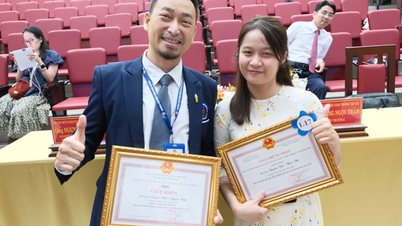


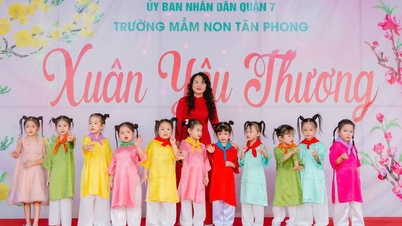

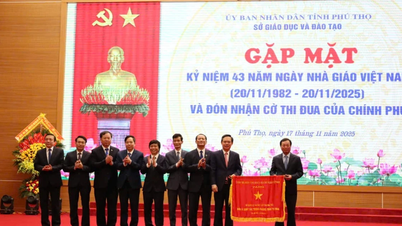

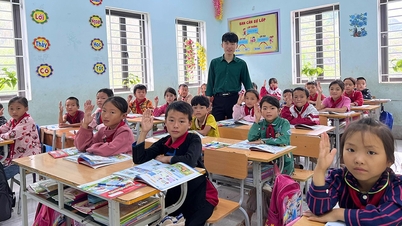
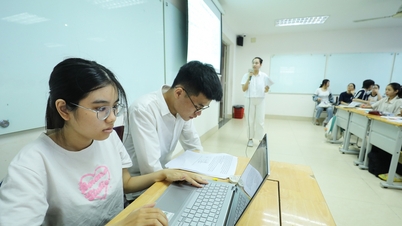
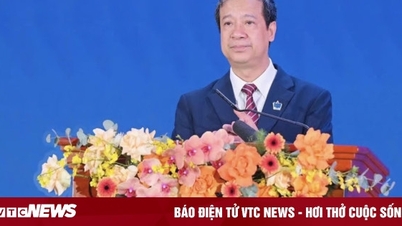

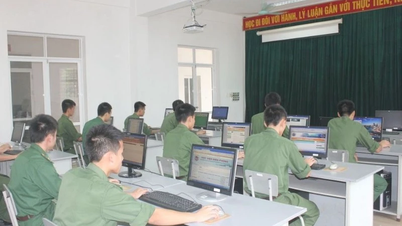

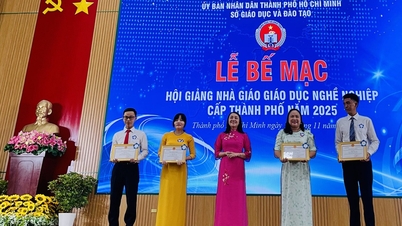
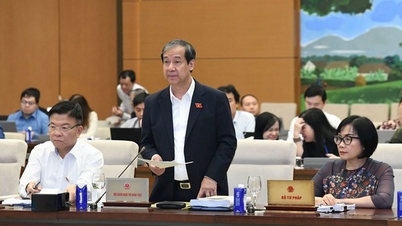
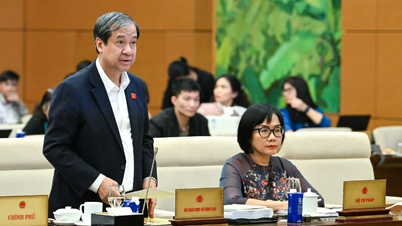
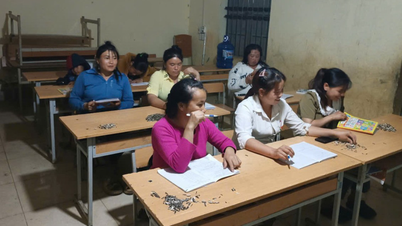





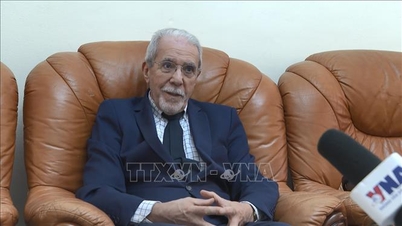

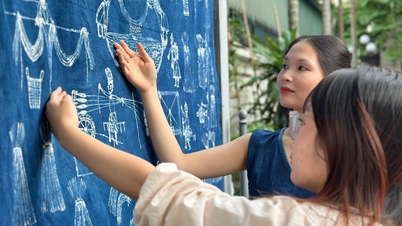
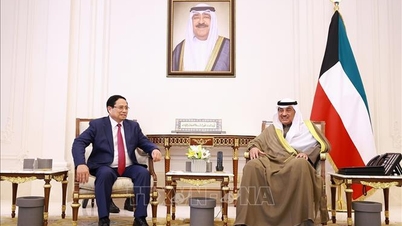
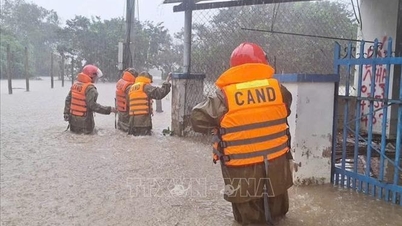
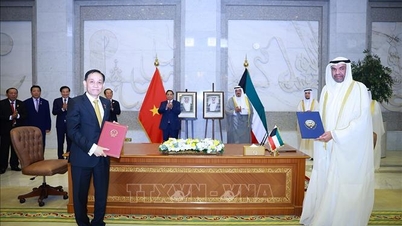
























































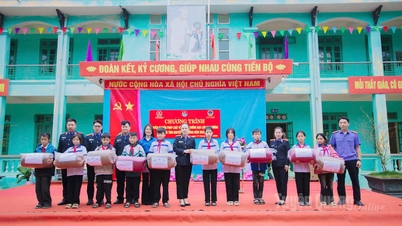

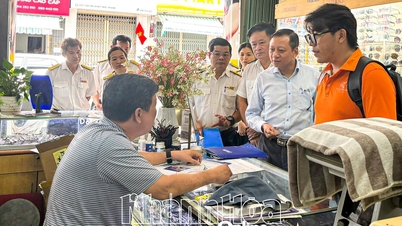


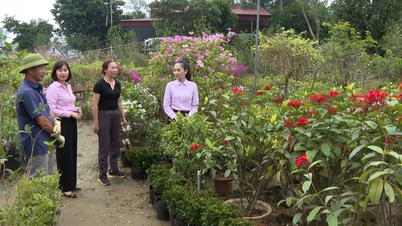










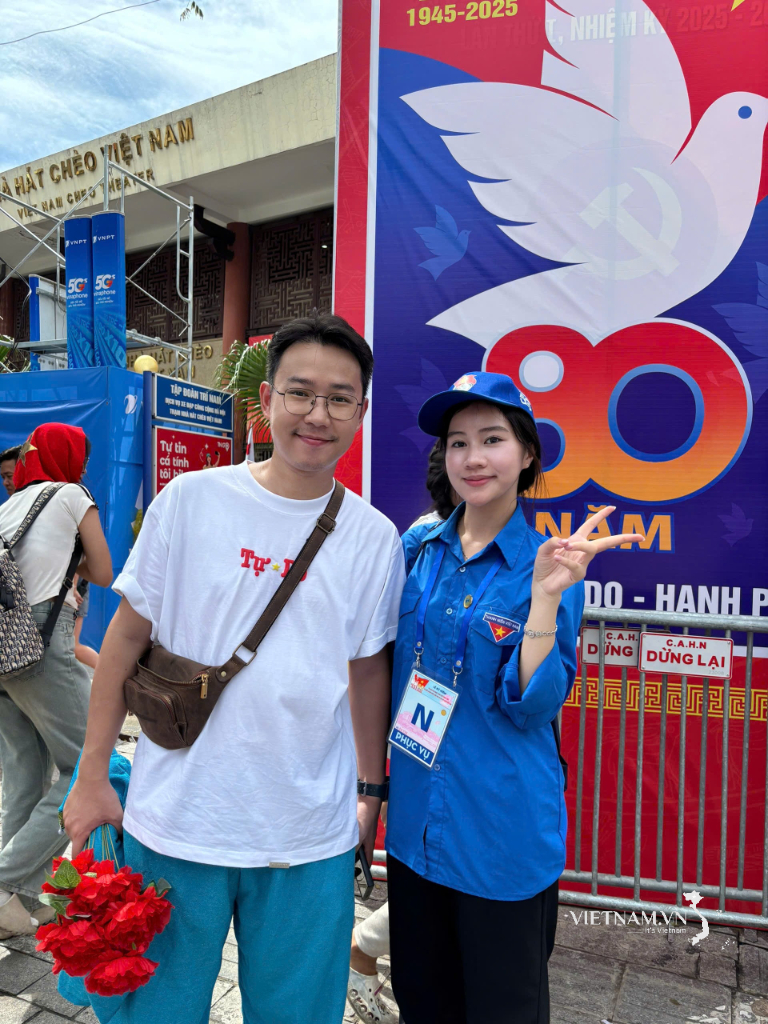



Comment (0)